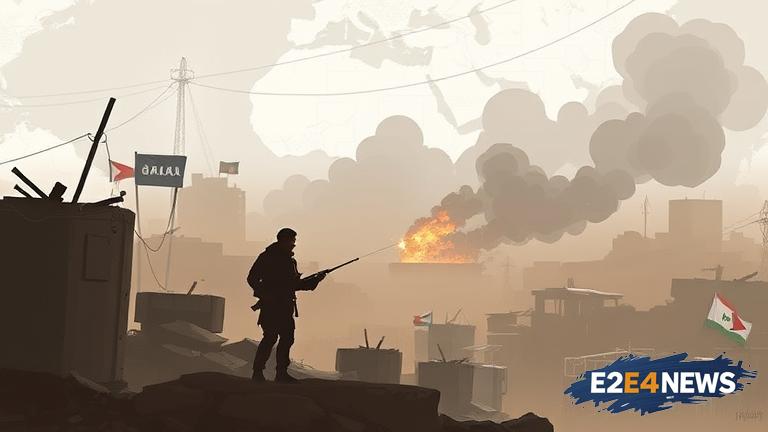The Israeli military has announced a pause in fighting in three areas of the Gaza Strip, amidst growing concerns over hunger and humanitarian crises in the region. The decision comes as a response to the escalating situation, where thousands of Palestinians have been affected by the ongoing conflict. The pause is expected to allow for the delivery of humanitarian aid and the evacuation of civilians from the affected areas. The Israeli government has stated that the pause is a humanitarian gesture, aimed at alleviating the suffering of the civilian population. However, Palestinian officials have expressed skepticism, citing concerns that the pause may be used as a tactic to regroup and launch further attacks. The conflict in Gaza has been ongoing for weeks, with both sides suffering heavy losses. The Israeli military has launched numerous airstrikes and ground operations, while Palestinian militants have fired rockets and mortars into Israeli territory. The situation has been further complicated by the presence of extremist groups, such as Hamas, which has been accused of using civilians as human shields. The international community has called for a ceasefire and an end to the violence, with many countries expressing concern over the humanitarian situation. The United States, in particular, has been criticized for its support of Israel, with many arguing that it has emboldened the Israeli government to continue its military operations. The European Union has also weighed in, calling for a two-state solution and an end to the occupation of Palestinian territories. As the situation continues to unfold, there are fears that the conflict could escalate further, drawing in other countries and leading to a wider regional crisis. The humanitarian situation in Gaza is dire, with thousands of people in need of food, water, and medical care. The pause in fighting is seen as a small step towards alleviating the suffering, but many argue that a more comprehensive solution is needed to address the root causes of the conflict. The Israeli government has faced criticism for its handling of the situation, with many accusing it of using disproportionate force and violating international law. The Palestinian Authority has also been criticized for its role in the conflict, with some arguing that it has failed to do enough to protect its citizens. The conflict in Gaza has also had a significant impact on the Israeli economy, with many businesses suffering losses due to the ongoing violence. The tourism industry, in particular, has been hit hard, with many countries advising their citizens to avoid travel to the region. The situation has also led to a significant increase in tensions between Israel and its neighbors, with many countries expressing concern over the potential for further escalation. In response to the crisis, many countries have pledged humanitarian aid, including food, water, and medical supplies. The United Nations has also launched an appeal for funds, citing the need for urgent assistance to those affected by the conflict. As the situation continues to unfold, it remains to be seen whether the pause in fighting will lead to a more lasting solution, or if the conflict will continue to escalate. The international community will be watching closely, as the situation in Gaza remains a major concern for global stability and security.
